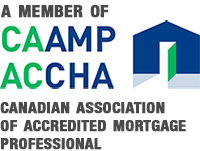


A few years ago, I got a mortgage with Jesse Brun. I was very pleased and thankful for all the help he offered. Jesse was very good at explaining everything I needed to know. I want to thank him for his help and his hard work. I will definitely keep recommending him and hope to be doing business with him again.
JESSE BRUN
Mortgage IntelligenceLicense #10428
Mortgage Broker (NB)
Mortgage Agent Level 2 (ON)

Alternative Construction Loan Companies Niagara Falls
If you're looking to finance a new construction in Niagara Falls, you may want to consider alternative construction loan companies. These companies offer alternative construction financing solution that can help you get your project off the ground
At our mortgage office, we specialize in providing alternative construction loans for home builders in Niagara Falls and the surrounding areas. We understand that every project is unique, and we work closely with our clients to find the right financing solution for their needs.
One of the advantages of working with an alternative construction loan company is that they have more flexibility than traditional lenders. We can often offer alternative solutions to banks or credit unions.
Our mortgage office has experienced construction Loan professionals who can help you navigate the construction loan process from start to finish. We can help you with everything from pre-approval to closing, and we'll be there to answer your questions every step of the way.
So if you're looking for a construction loan in Niagara Falls, we encourage you to contact us at (888)878-4660 or fill out the short form on the top left-hand side of our website. We'll be happy to discuss your project and help you find the financing solution that's right for you.
Why choose our mortgage office for your alternative construction loan company?
If you are tired of dealing with banks and not getting the financing support you need, we can offer you the best construction Loans. Our construction loan lenders in Niagara Falls are competitive and they support many home builders and developers in the Niagara Falls region. Our lenders also have advanced methods to quickly fast-track the approval process. As a bonus, our lenders do not have any credit score, income, or presale requirements. Our lenders are equity-based lenders who take a common-sense approach.
If your project is denied financial support by the bank or if you want to complete more projects faster, we are at your service to help you. Call (888)878-4660 and chat with us for an expert opinion about your project.
We are confident that when you connect with us, we can help to remove all headaches and hassles to get you the money to start your construction or development project as soon as possible. If you have money problems for your profitable projects, we have solutions.
Feel free to visit our construction loan website which shows in more details our private construction lender solutions for home builders and developers in Niagara Falls. The website is: www.ezconstructioncapital.com
Our mortgage office specializes in providing bad credit construction loans in Niagara Falls. We have years of experience working with individuals who have bad credit, and we understand the challenges that you may be facing.
When you choose our mortgage office for your bad credit construction loan, you can expect:
- Flexible eligibility requirements
- Personalized service
- Experience construction financing agent
- Fast construction approvals
- Expert advice & guidance
How Do Construction Loans Work?
A construction draw mortgage is structured to release funds to the borrower in stages, as construction progresses. Here's a brief explanation on how a construction draw mortgage typically works in Canada using 3 draws:
- First Draw (Weather Tight): The first draw is issued when the construction project reaches the "weather-tight" stage, which means the building has a roof, windows, and exterior doors that can keep out the weather. This draw is intended to cover the costs associated with completing the exterior of the home, such as the foundation, framing, roofing, and exterior finishes.
- Second Draw (Sheetrock Ready): The second draw is issued when the construction project reaches the "sheetrock ready" stage, which means the interior walls have been framed and are ready for drywall installation. This draw is intended to cover the costs associated with completing the interior of the home, such as insulation, electrical work, plumbing, and drywall.
- Final Draw (100% Complete): The final draw is issued when the construction project is 100% complete, depending on the lender's policies. This draw is intended to cover the remaining costs associated with the completion of the project, such as landscaping, paving, and final finishes.
In general, the borrower will only pay interest on the funds that have been drawn from the construction draw mortgage, rather than on the entire loan amount. This can help to keep monthly payments lower during the construction period. However, it's important to note that the interest rate on a construction draw mortgage is typically higher than on a standard mortgage loan, due to the increased risk associated with construction projects. The lender may also require periodic inspections of the construction site to verify that the work has been completed before releasing each draw.
Below is a list of words that are associated with getting a construction loan. We are providing you the list along with their definitions to help you in your construction journey:
Mortgage broker: a middleman who helps borrowers find and apply for mortgages, typically by working with a network of lenders.
Construction-to-permanent loan: a type of mortgage that allows borrowers to finance both the construction and the long-term financing of a new home or other real estate project.
Builder's risk insurance: insurance that protects against damage or loss during the construction process.
Certificate of occupancy: a document issued by a local government agency that certifies that a newly constructed building meets all local building codes and is safe for occupancy.
Construction contract: a legal agreement between a property owner and a contractor that outlines the terms and conditions of a construction project.
Disbursement: the process of releasing funds from a construction loan to pay for materials, labor, and other expenses.
Contingency fund: a reserve of money set aside to cover unexpected expenses that may arise during the construction process.
Building permit: a document issued by a local government agency that authorizes the construction of a new building or renovation of an existing structure.
Inspection: a process in which a professional inspector examines a property to ensure that it meets all relevant safety codes and standards.
Architect: a professional who designs buildings and oversees their construction.
Blueprints: detailed plans for a construction project, typically drawn up by an architect or engineer.
Mechanics lien: a legal claim filed by a contractor or subcontractor against a property owner who has not paid for their services.
Retainage: a portion of a construction payment that is withheld until the project is complete, typically used as a form of security against any potential defects or delays.
Surety bond: a type of insurance that guarantees that a construction project will be completed according to the terms of a contract.
Construction contingency: a reserve of funds set aside in case of unexpected expenses that may arise during the construction process.
Zoning laws: regulations that dictate how land can be used in a given area, typically set by local governments.
Interest-only loan: a type of loan in which the borrower only pays interest for a set period of time, with the principal due at the end of the loan term.
Balloon payment: a large, one-time payment due at the end of a loan term, typically used in conjunction with interest-only loans or other non-traditional mortgage products.
Construction lien waiver: a document signed by a contractor or subcontractor that waives their right to file a lien against a property in exchange for payment for their services.
Change order: a written document that outlines any changes to the original scope of a construction project, typically used to update project plans and budgets.
Construction loan: a short-term loan used to finance the construction of a new home or other real estate project.
Mortgage: a loan secured by real estate, usually used to purchase a home or other property.
Draw schedule: a timeline of when and how much money will be disbursed during the construction process, usually based on certain milestones being met
Closing costs: the fees associated with finalizing a mortgage or real estate transaction, including things like appraisal fees, title insurance, and attorney fees.
Lien: a legal claim against a property, usually filed by a creditor who is owed money by the property owner.


